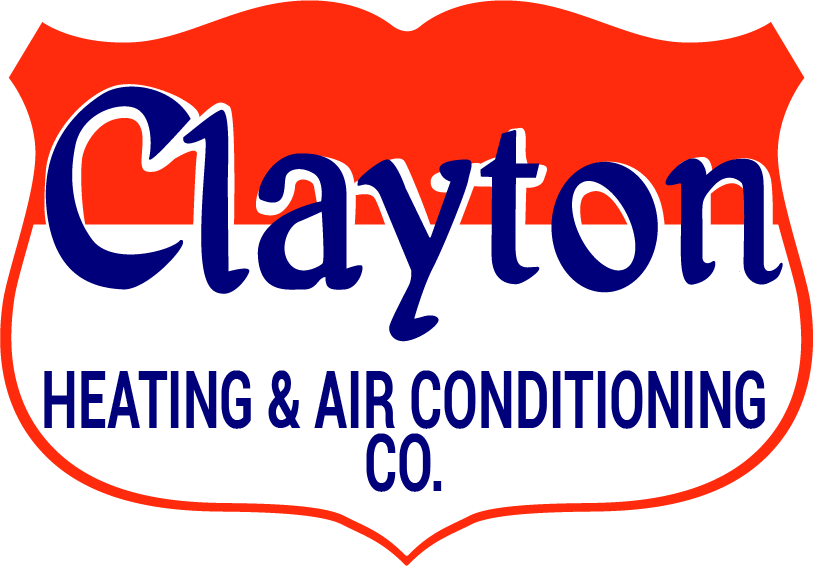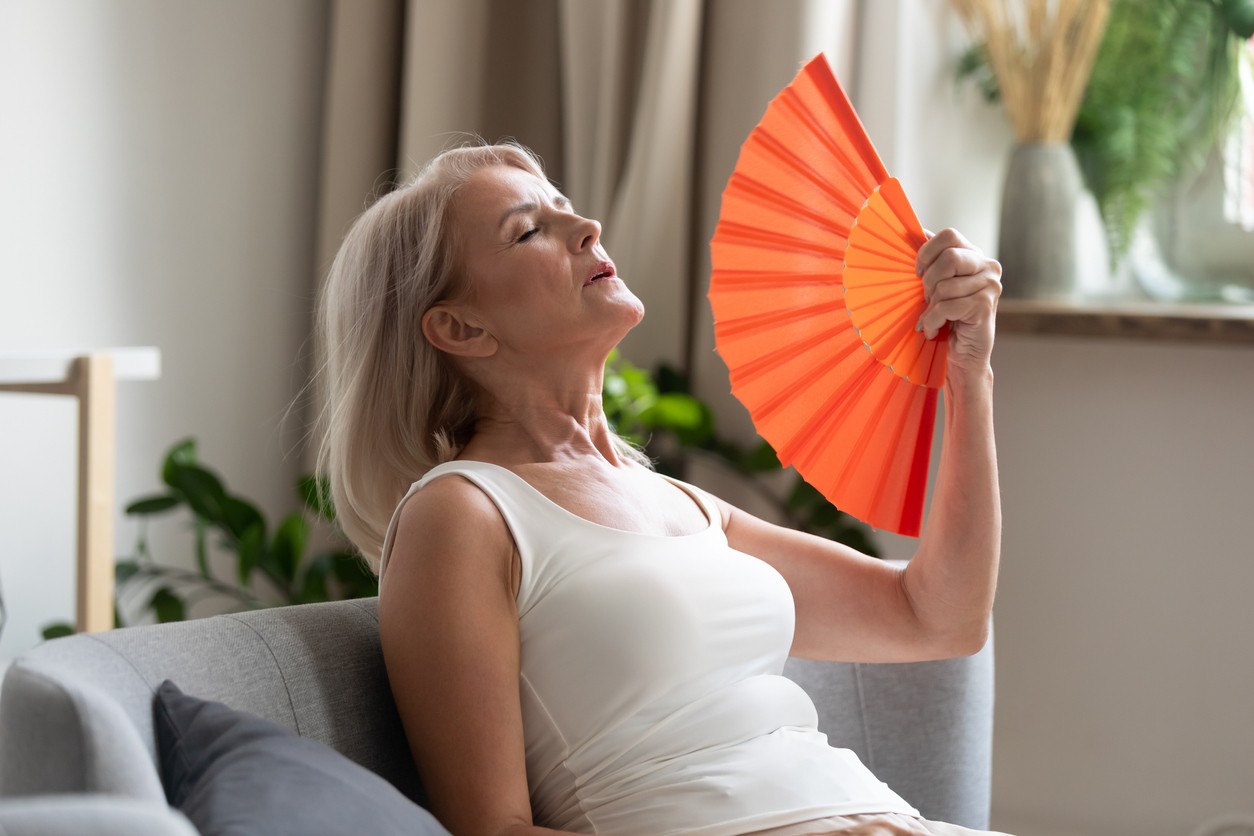It’s a sweltering summer day, and you’re looking forward to the refreshing blast of cool air as you step into your home. But instead of the icy breeze you’re expecting, you’re met with a disappointing gust of warm air from your AC vents. What’s going on? Why is your air conditioner failing to keep you cool?
In this comprehensive guide, we’ll explore the 10 most common reasons your AC might be blowing warm air and provide some troubleshooting tips you can try yourself. We’ll also discuss when it’s time to throw in the towel and call in a professional HVAC contractor. Let’s dive in!
1. Thermostat Issues
Before panicking about a major AC malfunction, start with the simplest possible explanation: your thermostat settings.
Check Your Settings: Make sure your thermostat is set to “COOL” mode and that the temperature setting is below the current room temperature. It’s easy to accidentally switch to “HEAT” or “FAN” mode, which can result in warm air blowing from your vents.
Battery Problems: If you have a battery-operated thermostat, weak batteries can cause erratic behavior. Try replacing the batteries and see if that resolves the issue.
Thermostat Location: Is your thermostat in direct sunlight or near a heat source? This can cause it to misread the room temperature and short-cycle your AC.
When to Call a Pro: If you’ve verified your settings and replaced batteries (if applicable), but your thermostat still isn’t functioning correctly, it may be time to contact an HVAC professional. They can diagnose whether you need a new thermostat or if there’s a more serious underlying issue.
2. Dirty Air Filter
A clogged air filter is one of the most common and easily fixable reasons for an AC blowing warm air.
How It Happens: When your air filter becomes excessively dirty, it restricts airflow through the system. This can cause your evaporator coil to freeze, preventing proper heat absorption and resulting in warm air output.
DIY Fix: Check your air filter. If it’s visibly dirty or you can’t remember the last time you changed it, replace it with a new one. Most residential AC systems need filter changes every 1-3 months, depending on factors like pets, allergies, and local air quality.
When to Call a Pro: If changing the air filter doesn’t solve the problem or if you notice ice buildup on your outdoor unit even after replacing the filter, it’s time to call in an expert. There may be a more serious issue with your evaporator coil or refrigerant levels.
3. Low Refrigerant
Refrigerant is the lifeblood of your AC system, responsible for absorbing heat from your home’s air and releasing it outside. Low refrigerant levels can severely impact your AC’s cooling ability.
Signs of Low Refrigerant:
- Warm air from vents
- Hissing or bubbling sounds from the AC unit
- Ice buildup on the refrigerant line or outdoor unit
Causes: Refrigerant doesn’t get “used up” like fuel. If your system is low on refrigerant, it means there’s a leak somewhere in the system.
When to Call a Pro: Always. Handling refrigerant requires specialized equipment and certification. Additionally, finding and repairing refrigerant leaks is a job best left to professionals. If you suspect low refrigerant, contact an HVAC contractor immediately.
4. Frozen Evaporator Coil
The evaporator coil is responsible for absorbing heat from your home’s air. If it freezes, it can’t do its job effectively.
Causes:
- Restricted airflow (often due to a dirty filter)
- Low refrigerant
- Malfunctioning blower motor
DIY Check: Turn off your AC and check the indoor unit. If you see ice buildup, you have a frozen coil. You can try thawing it by turning off the AC and running just the fan for a few hours.
When to Call a Pro: If the coil refreezes after thawing or if you can’t identify the cause of the freezing, it’s time to call in an expert. They can diagnose the root cause and make necessary repairs.
5. Dirty Condenser Unit
The outdoor condenser unit is responsible for releasing the heat absorbed from your home’s air. If it’s dirty or obstructed, it can’t efficiently dissipate heat.
DIY Fix:
- Turn off your AC at the thermostat and circuit breaker
- Clear away any vegetation or debris within 2-3 feet of the unit
- Gently clean the condenser fins with a soft brush or vacuum
- Straighten any bent fins with a fin comb
When to Call a Pro: If your condenser unit is severely dirty or damaged, or if cleaning it doesn’t improve performance, contact an HVAC professional. They can perform a thorough cleaning and check for any damaged components.
6. Compressor Issues
The compressor is the heart of your AC system, responsible for pressurizing and circulating refrigerant. When it fails, your entire system is compromised.
Signs of Compressor Problems:
- Warm air from vents
- Unusual noises from the outdoor unit
- Circuit breaker trips when AC turns on
When to Call a Pro: Always. Compressor issues are serious and require professional diagnosis and repair. In some cases, a failed compressor may mean it’s more cost-effective to replace the entire AC system, especially if it’s older.
7. Leaky Ductwork
If your ducts have leaks or poor insulation, cool air can escape before reaching your vents, mixing with warm attic or wall cavity air.
Signs of Duct Problems:
- Some rooms are cooler than others
- Higher than normal energy bills
- Visible damage or disconnected ducts in attic or crawl spaces
When to Call a Pro: While minor duct sealing can be a DIY project, it’s often best to have a professional assess and repair your ductwork. They can perform a thorough inspection and use specialized equipment to locate and seal leaks effectively.
8. Incorrect AC Size
An air conditioner that’s too large for your space can cool too quickly and shut off before properly dehumidifying the air, leading to a clammy feeling. Conversely, an undersized unit may run constantly without adequately cooling your home.
Signs of Improper Sizing:
- AC cycles on and off frequently
- Some areas of your home never seem to get cool
- High humidity levels indoors
When to Call a Pro: If you suspect your AC is improperly sized, contact an HVAC professional for an assessment. They can perform a load calculation to determine the correct size for your home and discuss replacement options if necessary.
9. Electrical Issues
Various electrical problems can cause your AC to malfunction, from tripped circuit breakers to faulty wiring.
DIY Checks:
- Make sure your AC’s circuit breaker hasn’t tripped
- Check that the emergency shutoff switch near the outdoor unit is in the “ON” position
When to Call a Pro: If you’ve ruled out simple electrical issues, it’s time to call in an expert. Electrical problems can be dangerous and should be handled by a qualified professional.
10. Normal Wear and Tear
Like any mechanical system, air conditioners wear out over time. If your AC is more than 10-15 years old and has been giving you increasing trouble, it may simply be reaching the end of its lifespan.
When to Call a Pro: If you’re experiencing frequent issues with an older AC system, have an HVAC contractor perform a thorough inspection. They can advise whether continued repairs are worthwhile or if it’s time to consider replacement.
When to Definitely Call an HVAC Contractor
While some AC issues can be resolved with simple DIY fixes, others require professional attention. Here are some situations where you should always call an HVAC contractor:
- You smell burning or electrical odors from your AC unit
- Your AC is making loud, unusual noises
- You see water leaking from the indoor unit (beyond normal condensation)
- Your energy bills have spiked dramatically without a clear reason
- Your AC isn’t cooling effectively, even after trying basic troubleshooting steps
- You’re experiencing frequent breakdowns or need repairs more than once per season
- Your AC is more than 10-15 years old and showing signs of decline
Remember, while it might be tempting to try and save money by attempting complex repairs yourself, DIY efforts can often lead to more damage and costlier repairs down the line. When in doubt, it’s always better to consult with a professional.
Regular Maintenance: The Key to Preventing Problems
Many of the issues we’ve discussed can be prevented or caught early through regular maintenance. Consider scheduling professional AC tune-ups in the spring and fall to keep your system running efficiently and catch potential problems before they escalate.
A properly functioning air conditioner is crucial for comfort during hot summer months. By understanding common causes of AC problems and knowing when to call in professional help, you can ensure your home stays cool and comfortable all season long. Remember, while some troubleshooting steps are simple enough for homeowners to handle, many AC issues require the expertise of a qualified HVAC contractor. Don’t hesitate to reach out to a professional if you’re unsure or if basic troubleshooting doesn’t resolve the problem.
Clayton Heating & Air Conditioning Offers Premier AC Maintenance, Repair and Installation in Northeast Ohio
Clayton Heating & Air Conditioning offers comprehensive air conditioning services to keep your home cool and comfortable. They provide routine maintenance, prompt repairs, and complete installation of new systems. Their skilled technicians are available 24/7 for emergency repairs and can work on all types of cooling systems, including high-efficiency units. Clayton’s services include lubrication, inspection, cleaning, and maintenance checks to ensure your AC operates efficiently. They also offer advanced solutions like Variable Refrigerant Flow technology for energy-efficient cooling tailored to your needs. Contact us today for all your HVAC needs.

